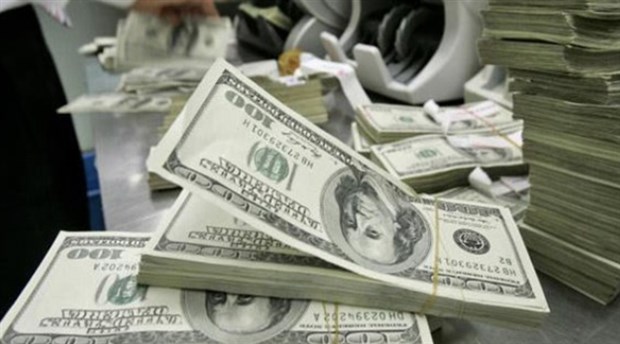The specter of political interference in Central Bank’s monetary policy was on vividly display on Tuesday after the bank kept its key interest rate unchanged, leaving the Turkish lira plummeted.
The bank defied market pressure for a rate hike to keep a hold on soaring inflation and prompting a new slump in the value of the embattled lira.
Economists said the bank’s defiance of calls for a steep rate hike to combat inflation of above 15 percent was an alarming sign of President Recep Tayyip Erdogan‘s control of monetary policy after he won June 24 elections.
While the Turkish central bank is nominally independent, Erdogan’s choice of his son-in-law and ex-energy minister Berat Albayrak, 40, to lead a revamped treasury and finance ministry has already spooked investors.
The bank said in a statement that it would keep the one-week repo rate unchanged at 17.75 percent.
The lira lost 3.2 percent in value to reach 4.9 against the U.S. dollar after the bank’s announcement as markets reacted with disappointment to the decision, which had been seen as a key test of its credibility after the elections.
“Today’s decision shouldn’t be that big of a surprise to markets, as Erdogan has said loud and clear (also after the elections) that he doesn’t believe in higher rates,” said economist Nora Neuteboom at Dutch bank ABN Amro, who had predicted no change.
Inflation in Turkey was 15.39 percent in June from the same period the year earlier, the highest reading in almost one-and-a-half decades.
But Neuteboom added that the bank’s decision was a signal that Turkey is “not willing to fight inflation nor support its currency by using the monetary mechanism.”
Erdogan previously said interest rates were the “mother and father of all evil” and has persistently pressed for low rates, going against economic orthodoxy, in a challenge to the central bank’s independent status.
Before the polls, Erdogan told Bloomberg TV during a visit to London that he would seek more control over monetary and economic policy.
Erdogan wants lower rates to boost economic growth, which has been one of the big successes so far of his 15-year domination of the country.
“By keeping rates unchanged Erdogan is not going against his election pledge, has not betrayed his unorthodox approach to economics and also is not completely pulling the rug from beneath the feet of Albayrak,” said Anthony Skinner, director of Middle East and North Africa at the Verisk Maplecroft consultancy, who predicted no rate changes.
However, the bank appeared to keep the door open for further hikes saying a “tight stance in monetary policy will be maintained decisively until inflation outlook displays a significant improvement.”
But it said that recent data had shown a “rebalancing trend in the economic activity” as “signs of deceleration in domestic demand become more visible” even as external demand remained strong.
Economists had forecast a hike in the range of between 0.75 to 1.50 percent points in the rate.
Atilla Yesilada, an advisor at GlobalSource Partners consultancy, said the bank’s move was a “fatal mistake” which could force a second emergency rate hike after a similar move in May.
Yesilada also said there was a risk of a recession as well as “very high” inflation, even as high as 20 percent, unless the bank relented and raised rates by three percent.
Gokce Celik, chief economist at QNB Finansbank, said renewed depreciation pressure after today’s bank decision was “likely to intensify the slowdown process” in the economy.
Albayrak issued a statement seeking to show his ministry was acting to fight inflation after the bank’s announcement but appeared to indicate promoting growth was the priority.
Measures would be taken “in coordination with steps necessary to meet growth targets, with a holistic approach and in line with mutually complementary policies,” he said.
He added that actions to reduce public spending in the 2018 financial year had begun.
But Celik of QNB Finansbank in Istanbul said the rate decision suggested officials will “possibly have a very hard time convincing investors about the resolve to take the necessary steps on the fiscal front,” especially with local polls looming in March.
Central Bank, Public Banks Come Under Authority of Erdogan’s Son-in-Law




Comments are closed.